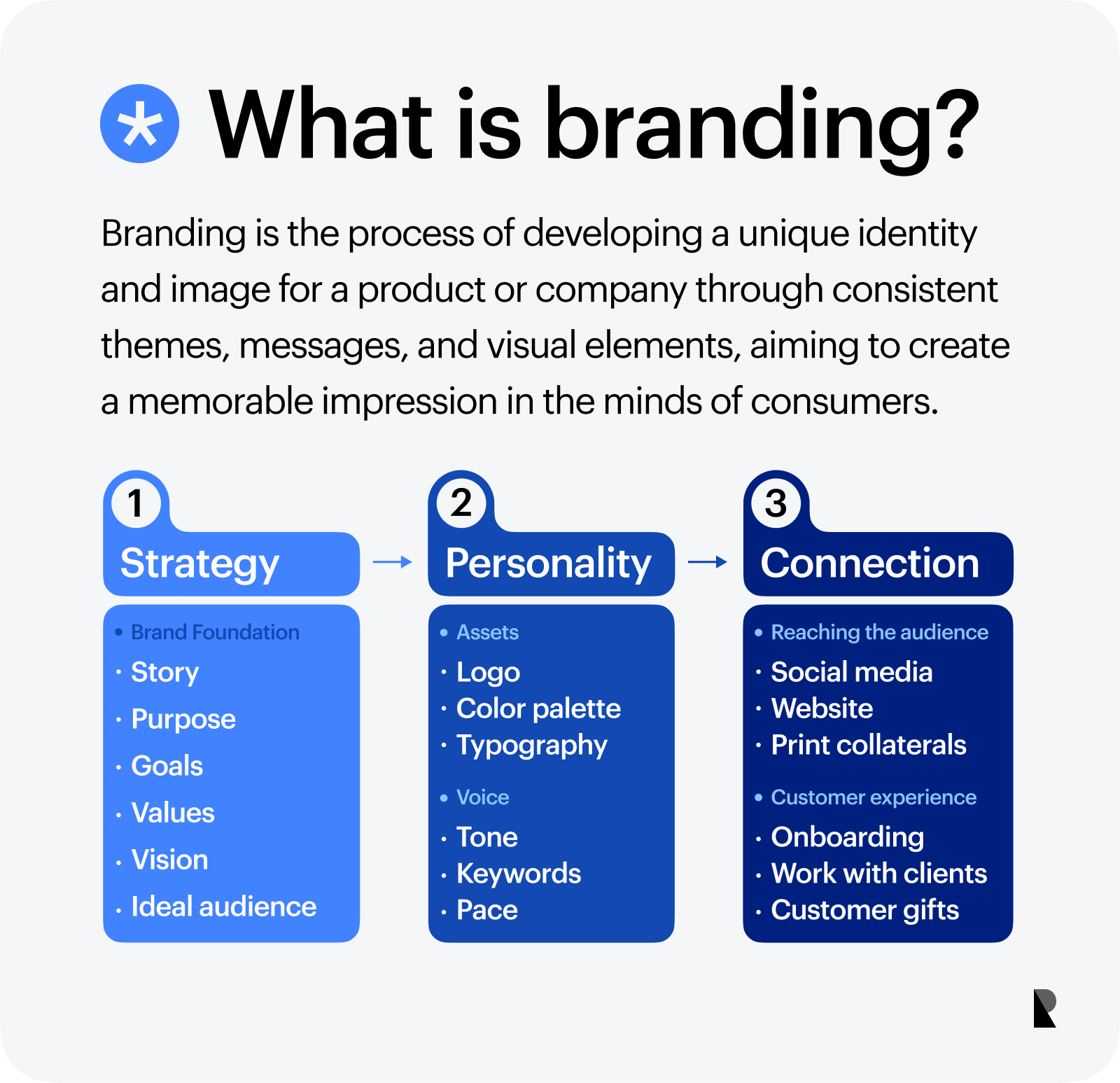The Key to Structure Client Trust Fund Depends On Robust Branding
The Key to Structure Client Trust Fund Depends On Robust Branding
Blog Article
Why Durable Branding Is Crucial for Market Management
In today's competitive landscape, durable branding becomes an important element for achieving market leadership. A distinct brand name identity not only sets a firm aside from its competitors but also cultivates trust and psychological links with consumers. These aspects are essential for promoting commitment and encouraging repeat company, yet lots of organizations neglect the much deeper ramifications of their branding techniques. As we check out the multifaceted nature of branding, it comes to be evident that the stakes are high for those that fall short to identify its importance in shaping long-lasting service success. What are the particular methods that can elevate a brand to this well-regarded status?
Understanding Brand Name Identity
Continually recognizing the importance of brand name identity is important for any type of organization desiring attain market leadership. Brand identification includes the visual elements, messaging, and total understanding that distinguish a business from its competitors. It acts as a foundation for just how consumers regard and engage with a brand, playing an essential duty in forming their experiences and expectations.
A well-defined brand name identification interacts the core worths and mission of an organization, producing a psychological link with its target market. Elements such as logos, color design, typography, and intonation must line up cohesively to convey a regular message throughout all systems. This consistency reinforces brand recognition and cultivates customer loyalty.
Furthermore, brand identity is not simply surface; it reflects the credibility and integrity of a company. It should be very carefully crafted to resonate with the desired audience while continuing to be adaptable to developing market patterns. Organizations that prioritize a solid brand identity can efficiently separate themselves, construct a positive reputation, and grow a dedicated client base. Eventually, a robust brand name identity is essential for browsing competitive landscapes and sustaining long-term success.
Structure Consumer Trust Fund
A strong brand name identification prepares for constructing consumer trust, an essential element in attaining market management. Depend on is not just an emotional reaction; it is a strategic possession that can dramatically affect acquiring choices and brand loyalty. Business that grow transparency, integrity, and uniformity in their messaging and activities cultivate a complacency amongst consumers.
To develop this trust, brand names should provide on their pledges. This indicates making sure that product top quality fulfills client assumptions and that service experiences are responsive and positive. Consistent interaction enhances integrity; when clients know what to anticipate and that their problems will certainly be dealt with, their self-confidence in the brand name deepens.
Social evidence also plays an important role in developing depend on. Favorable evaluations, testimonies, and endorsements from reliable sources boost a brand name's reputation and can guide potential customers. Furthermore, involving with customers through social platforms and resolving their concerns openly demonstrates liability and commitment.
Distinction in Competitive Markets
In today's congested marketplace, differentiation is important for brands looking for to stand apart and catch customer attention. With numerous choices available, customers are usually overwhelmed, making it important for brand names to develop an unique identity that reverberates with their target audience. This distinction can manifest through different elements, including product attributes, pricing strategies, customer support, and brand messaging.
Reliable differentiation includes not just recognizing what makes a brand name special however also connecting these distinctions clearly and constantly. Brand names need to verbalize their worth suggestion in a means that addresses certain consumer requirements and preferences. A company may focus on sustainability, innovative innovation, or personalized client experiences to sculpt out a specific niche in an affordable landscape.
Furthermore, brand names should consistently assess their affordable environment to adjust and improve their differentiation approaches. This aggressive technique makes certain that they stay attractive and pertinent to consumers as market dynamics develop. Inevitably, robust branding that emphasizes distinction not only promotes brand commitment however also places a firm as a leader in its sector, leading the method for sustained growth and market supremacy.
Psychological Links With Consumers
Psychological links serve as a powerful catalyst in building lasting partnerships between brand names and consumers. It promotes loyalty that goes beyond simple transactional communications when consumers reverberate with a brand name on a psychological level. Brands that effectively evoke emotions-- whether through storytelling, shared worths, or genuine engagement-- create a feeling of belonging for their clients.
These emotional ties can dramatically affect buying decisions, as customers are commonly driven by sensations instead than reasoning. A brand name that straightens with customers' ambitions or addresses their pain factors can grow a deep-seated loyalty that causes repeat company and favorable word-of-mouth references.
Additionally, psychological branding allows business to differentiate themselves in congested markets. By taking advantage of the views of their target audience, brands can carve out an one-of-a-kind identification that resonates deeply, making them unforgettable and liked over competitors.
In an age where consumers are pounded with options, a strong psychological connection can be the making a decision consider brand preference. Hence, prioritizing emotional engagement is not just an advertising and marketing method; it is a calculated crucial for brands seeking to develop meaningful connections and enhance consumer retention.
Long-Term Company Success
Lasting organization development rests on the ability to cultivate durable branding techniques that reverberate with customers over time. A strong brand name not only separates a business from its rivals blog here but likewise promotes loyalty and trust among customers. This lasting connection is necessary for making certain repeat service, which dramatically contributes to profits stability and growth.
In a progressively competitive marketplace, brands that interact a clear and consistent message are much more likely to thrive. This consistency reinforces brand identity, making it less complicated for consumers to choose the brand and Bonuses recall over others. Robust Branding. Because of this, a well-established brand can adjust to market changes without losing its core essence, enabling technology without estranging devoted customers
In addition, robust branding develops a system for consumer interaction, whereby services can collect comments and adjust their offerings accordingly. This iterative procedure not just enhances consumer contentment yet additionally builds a community around the brand name, promoting a sense of belonging.
Conclusion

Organizations that focus on a solid brand name identity can properly distinguish themselves, build a favorable track record, and grow a loyal customer base.A solid brand identity lays the groundwork for next constructing client depend on, a key element in accomplishing market leadership. A solid brand name not just separates a company from its rivals but likewise fosters loyalty and count on among customers. As an outcome, a well-established brand name can adjust to market changes without shedding its core essence, enabling for advancement without pushing away devoted consumers.

Report this page